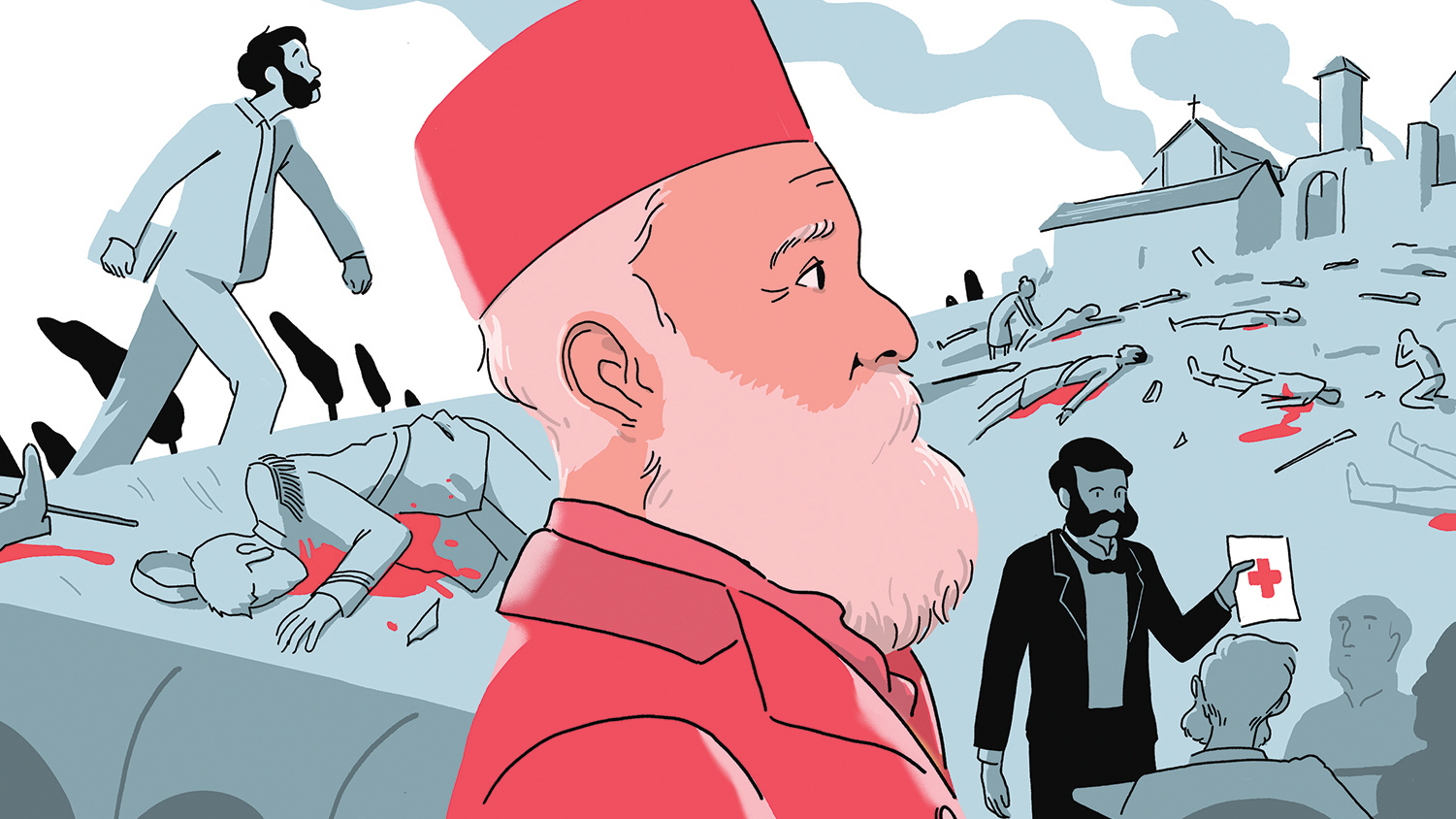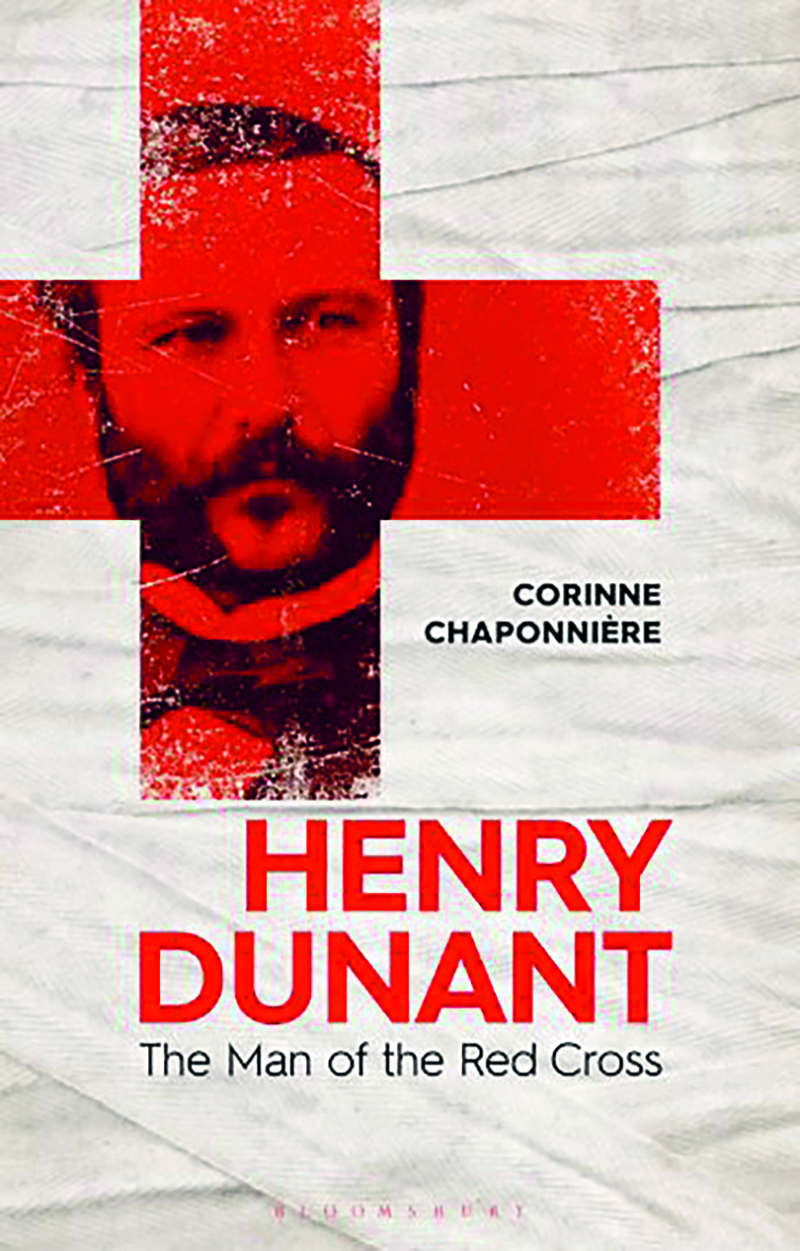In Geneva, you can encounter Henry Dunant on every street corner. There is a Henry Dunant Avenue, a Henry Dunant College, a Henry Dunant Centre for Humanitarian Dialogue, and a Henry Dunant Society.
Like every other Genevan, I knew the basics of his life: founder of the Red Cross, born in Geneva, even that his birthday, May 8, is used to celebrate Red Cross and Red Crescent Day all around the world.
In the early 2000s, a production company asked me to help a well-known Swiss director write the screenplay of a TV biopic about Dunant. Unfortunately, after a year of work, the producers discovered they hadn’t raised enough money to shoot it. But I soon received a call from the director of the Red Cross Museum, who had read the script. He suggested I write a biography.
I replied that there were plenty of books on Dunant already, but he intimated this was only partially true – there were many, but a true biography had yet to be written, one which told Dunant’s entire story and not just what Geneva or the Red Cross wanted to hear. I knew there were a hundred metres of archival material at the Geneva Public Library, waiting to be investigated. For sure, Dunant hadn’t yet revealed all his secrets. Behind the TV biopic hero was another man waiting to step out of the shadows.
Nonetheless, the feat that made him famous was true. In 1859, Dunant was a civilian witness to the bloody aftermath of a horrible battle in Solferino, Italy. Watching the masses of dying and wounded men pouring off the battlefield, he realised how radically insufficient the military aid teams were. But he also noticed that the local population, though ready to help, was neither organised nor trained for this difficult work. Something had to be done.
Highly traumatised by what he’d seen, he wrote a manifesto, A Memory of Solferino, published in 1862. It soon became a bestseller. To conclude his gut-wrenching description of the horrors of war, Dunant advocated the creation of civilian aid teams during peace time so they would be ready for action when war broke out. One year later, a conference was held in Geneva to create the Red Cross. The following year, official delegates of the same countries were signing the first ever version of the Geneva Convention, the international covenant still used today to protect the wounded from the world’s armed forces on the battlefield.










